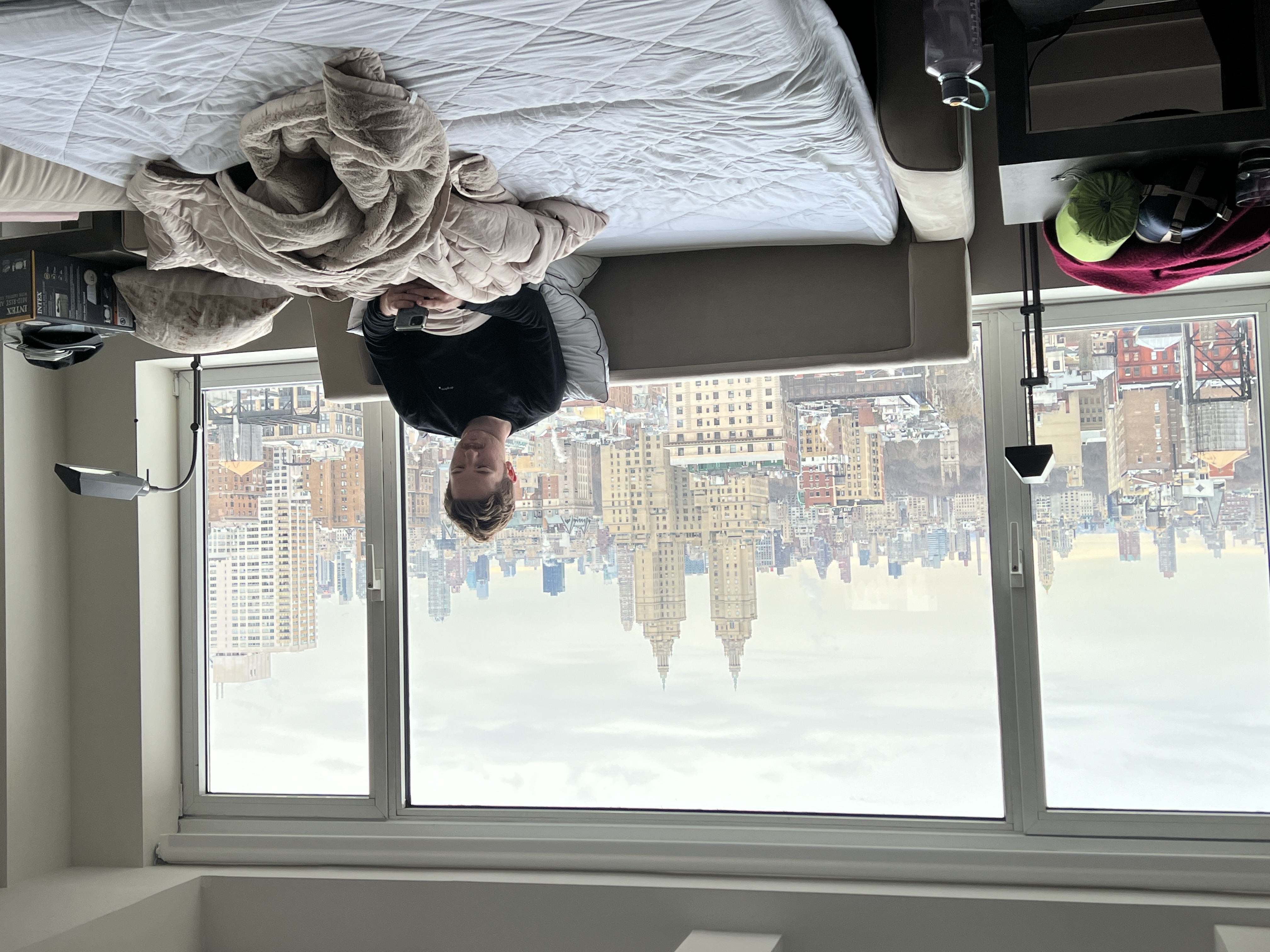on influences of the mind
The moment that one looks up and sees a full moon with clouds drifting in front of it; that one opens mail to find something a friend wrote by hand; that the logic of some complicated system unravels in the mind, revealing the path forward; that a restaurant tried without prior knowledge or recommendation turns out to be good; that a stranger becomes a friend upon the surfacing of some shared experience or belief or taste; that the runner's high is broken and it becomes apparent that the experience of running has for some time been completely free and painless ~ ~ unpredictable events cause discontinuities in experience, catalyzing the jump across some transient subconscious chasm completely obscured from the perspective of the thinking mind.
The world reaches into the mind and changes it, it just goes right ahead without permission and reconfigures you, sparking the same feeling — this loss of control; a subjectivity to the world (in the sense that one is being subjected to the world). Through the senses, information crosses the barrier between You and Not-You. It ripples stochastically through the dense weighted web of unconscious neurons, which architect the brain and compose the mind, and makes little tweaks along the way.

Sometimes reconfiguration occurs without the typical shove from outside. An idea can form seemingly out of nowhere---somewhere---within the brain, but outside of awareness. Everyone has had this experience. Some think they control the phenomena that lead to their awareness of a new idea.
Some find the intrusive nature of unexpected influences uncomfortable and attempt to safeguard against them. The outside world is complex and you never know when it will present something that doesn't fit into your mental model. Maybe no human-conceivable mental model is sufficient to fit all the data we are presented with; it is often stressful and/or depressing to face the unrelenting, indigestible flow of information supplied by the internet. And so most people have a ```shortcut```, or some belief system that simplifies things. Confirmation bias is the selective rejection of data that does not happen to fit into one's model.
I met a man in a bar who calls himself Cherokee. Cherokee believes that the covid vaccine contains a bluetooth chip. He showed me the bluetooth settings on his Android, which displayed a list of MAC addresses, and with some bizarre combination of confidence and desperate paranoia proclaimed that it was absolute, undeniable, incontrovertable, 100% explanatory no-kidding obvious proof of his idea about the vaccine. in the spirit of socratic debate, I asked him for the size of the chip which would allegedly have been injected into my arm about a year ago. He showed me his settings app again and told me that I wasn't thinking critically.
Though I felt the humanitarian urge to reason with him, of course there was no use fighting this battle (((the giant could have snapped my spine if he chose to))). However there are two interesting points here, excluding a disappointingly trivial debunk of the bluetooth theory (hypothesis).
- what I was getting at above: the (dis?)ability of the human mind to develop strong world models and information filters;
- how one perceives the frequency of this kind of serious conspiratorial suspicion and its causes.
1
I have to wonder whether the experiences listed in the opening paragraph would be described similarly by people like Cherokee. Or is there a level of paranoia so deep that all new experiences are suspect? The loss of control associated with being taken from one mental state to another can be scary; it is never clear what state you will end up in, and the current state is generally comfortable (if not necessarily pleasant) since it has been thoroughly explored. So I imagine that a strong mental model of the world severely limits experience (!!!), to the degree that one seldom feels the B.O.U.N.D.A.R.I.E.S. (Bewilderment Of Unexpected Novelty Disguised As Reified In Everyday Schedules). A loose mental model allows for unknowns to persist in a neutral standoff alongside the facts one gathers, acknowledging that human understanding may never be complete.
2
I rarely meet people who sincerely hold beliefs like the vaccine theory, which I understand is in part a function of chance. I also don't meet people that often in general. That being said, my intuition is that their frequency is on the order of 10-4 to 10-3, putting the total in the US between 33,000 and 330,000. To get to a 90% confidence interval I would probably (reluctantly) open up the high end by another order of magnitude, meaning I'm 90% confident that less than 3.3 million Americans believe in a far-fetched conspiracy behind the covid vaccine. I hope I'm wrong about this, as it's painful to imagine one million people believing something like that.
. . .
Openness to experience is a dimension of the Big Five model of psychological personality taxonomy. This suggests, to put things very simply, that it is a trait with a spectrum along which people tend to fall at different points due to individual life histories and habits. Growing up in a moderately conservative environment and now exploring a much wider range of ideas and experiences, I would argue that openness is generally a ```good``` trait; something one should tend to want to increase. I feel that I have benefitted in many ways from becoming more open. Life seems more enjoyable when the world is allowed to bypass the biases and filters, ignoring the mental models and explanations, plainly influencing the mind.